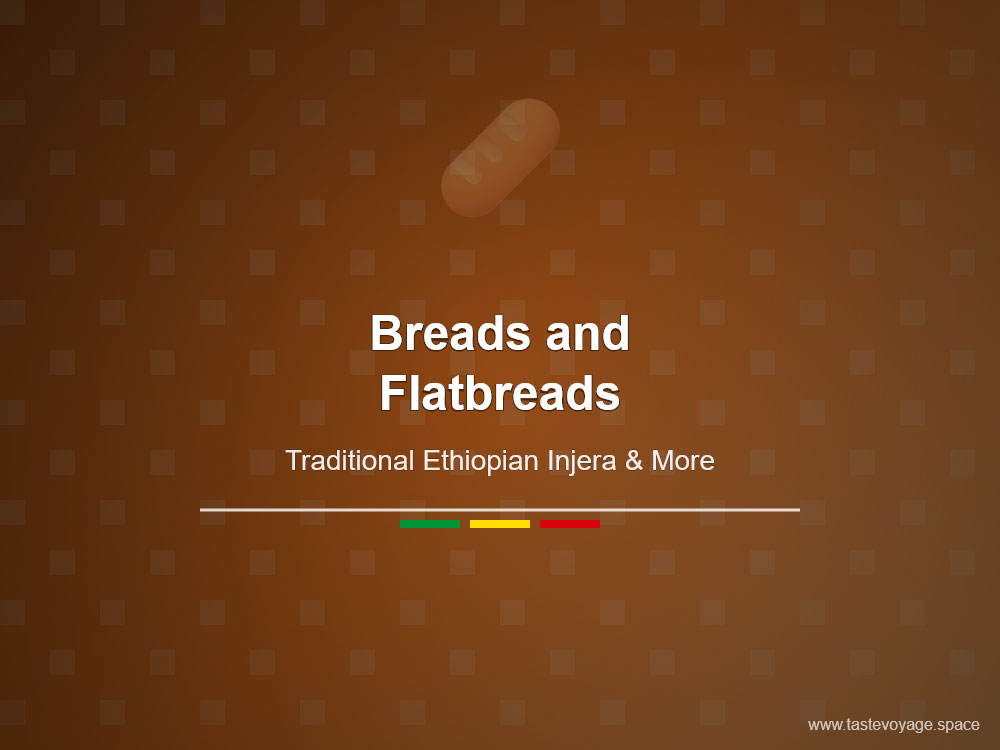Authentic Ethiopian Sourdough Starter Recipe | Easy & Traditional
Travel the World Through Food >> Breads and Flatbreads>>Ethiopian Cuisine>> Authentic Ethiopian Sourdough Starter Recipe | Easy & Traditional
Authentic Ethiopian Sourdough Starter Recipe | Easy & Traditional
Discovering the Cultural Richness of Ethiopian Sourdough Starter
Ethiopian Cuisine is celebrated worldwide for its vibrant flavors, unique ingredients, and centuries-old culinary traditions. Among these traditions, the sourdough starter used in traditional Ethiopian baking holds a special place. This natural fermentation process not only enhances the flavor of local breads but also embodies the cultural heritage of Ethiopia. Exploring this sourdough starter reveals a story of community, craftsmanship, and culinary artistry that spans generations.
The Heart of Ethiopian Baking: A Cultural Treasure
In Ethiopia, sourdough starter is more than just a ingredient; it’s a cultural symbol. It connects bakers and families through shared traditions and communal practices. The starter is often passed down from one generation to another, fostering a sense of continuity and identity. Its preparation and maintenance involve patience and skill, reflecting the values of respect for tradition and craftsmanship deeply rooted in Ethiopian society.
The Ethiopian sourdough starter is integral to making injera, a staple flatbread that serves as a foundation for many traditional dishes. Injera’s distinctive tangy taste and spongy texture owe much of their character to this natural fermentation process. The starter’s unique microbial composition contributes to the bread’s flavor, aroma, and texture, making each loaf a reflection of local climate, water quality, and cultural practices.
Culinary Significance and Unique Characteristics
The culinary importance of the Ethiopian sourdough starter extends beyond its role in baking. It embodies the country’s emphasis on fermentation as a means of food preservation and flavor development. Ethiopians value the starter for its ability to transform simple ingredients into complex, aromatic breads that complement a variety of flavorful Stews and vegetable dishes.
What makes the Ethiopian sourdough starter particularly special is its natural fermentation process, which often requires days of nurturing and careful observation. This process develops a distinct acidity and depth of flavor that is highly prized in Ethiopian cuisine. The starter also promotes the use of locally sourced ingredients, emphasizing sustainability and connection to the land.
Preserving a Time-Honored Tradition
In its essence, the traditional Ethiopian sourdough starter exemplifies a Culinary Art that has endured through centuries. It is a symbol of community and tradition, often prepared in communal settings where elders pass down their knowledge to younger generations. This communal aspect strengthens bonds and preserves cultural identity through shared food practices.
Today, many Ethiopian households and bakeries continue to cherish and nurture their sourdough starters. They serve as living links to the past, connecting communities through taste, technique, and cultural pride. Appreciating this starter invites us into a world where food is more than sustenance—it is a vessel of history and cultural expression.
Celebrating the Heritage of Ethiopian Sourdough
In understanding the significance of the Ethiopian sourdough starter, we celebrate the rich culinary heritage of Ethiopia. It reminds us of the artistry behind traditional baking and the importance of preserving age-old practices. Whether enjoyed in the form of injera or other traditional breads, this sourdough starter remains a vital part of Ethiopia’s cultural landscape. It showcases the beauty of fermentation as both a culinary technique and a cultural tradition that continues to thrive today.
By exploring this traditional ingredient, we gain a deeper appreciation for the intricate relationship between food, culture, and community in Ethiopian society. It inspires us to value and protect culinary traditions that connect us to history and to each other—one loaf at a time.
